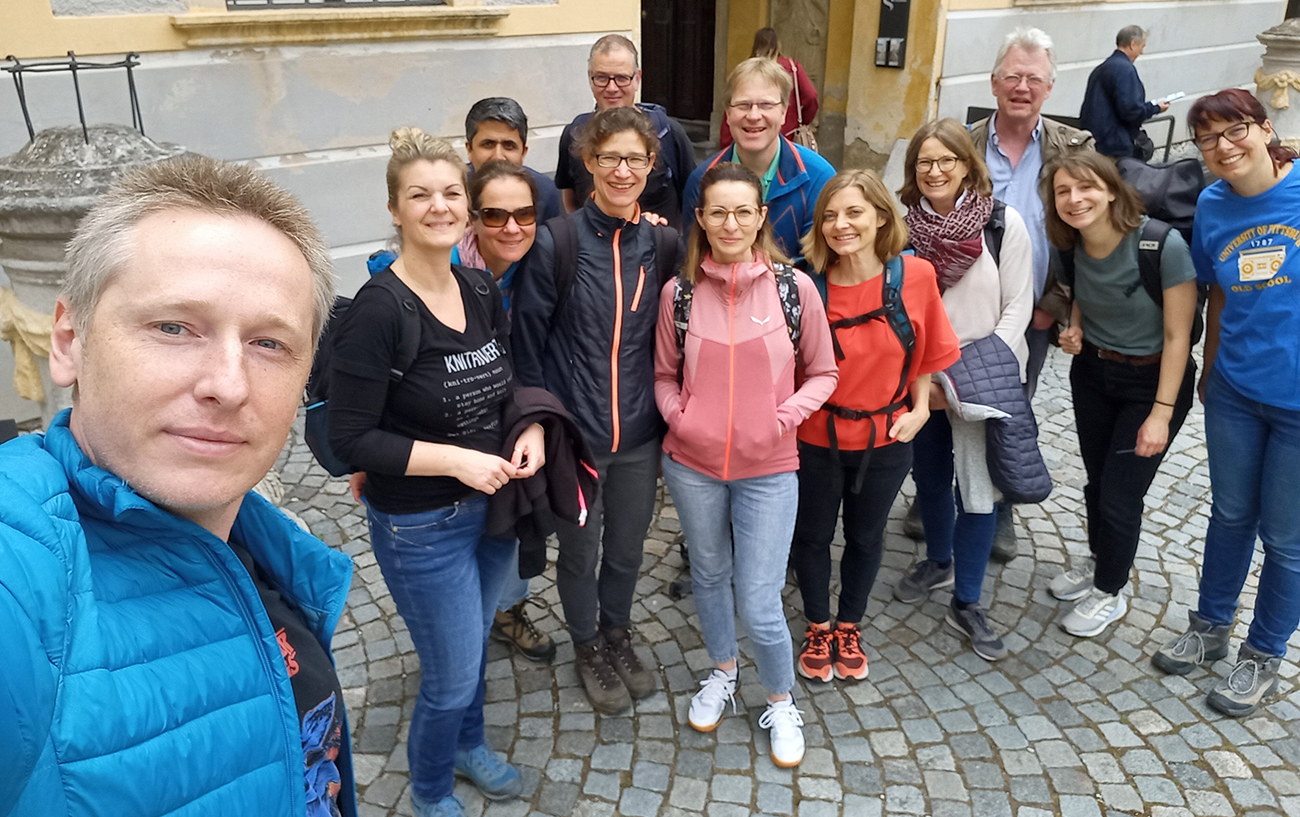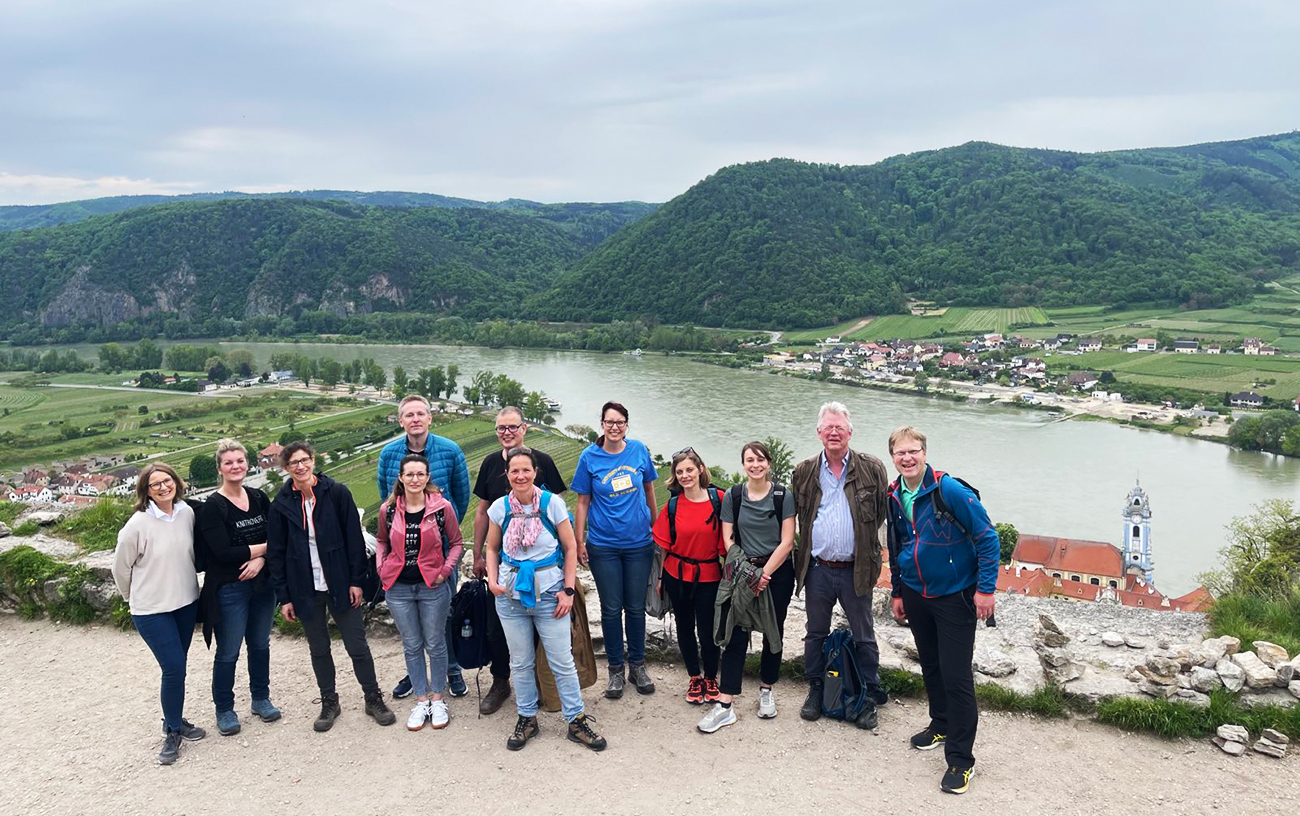
Dear Taras*, in which three words would you summarize your research stay at the Department for Migration and Globalisation?
This is easy to describe - efficient, timely and ongoing. The latter means that these four months have only been the beginning. A lot of fascinating and challenging work lies ahead.
Are there any experiences from this time that you will particularly remember?
Here at the Danube University Krems, everyone and everything was designed to facilitate my research in the best possible way: from experienced colleagues who were always ready to help, to state-of-the-art equipment, library and recreational facilities, and so on. But there is one thing I will remember in particular - the lack of people in the streets of Krems, compared to the bustling Vienna, and as a result, the unusual silence and even mysterious tranquility of this small, wonderful city.
You also lectured within the framework of the Master's program “Migration and Integration Management”. How did you experience it?
Being a lecturer, especially in front of a new audience, brings with it certain obligations and ... fears. You know, everything has to be done in the best possible way! After all, I was representing my university and my country - Ukraine. The presentation was about the 5th wave of Ukrainian diaspora expansion as a result of the full-scale Russian invasion of Ukraine. The topic seemed to generate real interest and lively discussion during and after my presentation, which I consider a success for all participants - faculty and students.
Please tell us about your current research interests: What issue(s) do you currently find particularly relevant?
On the one hand, my research interests have remained the same. On the other hand, they have been broadened by the knowledge and experience I've gained at the Donau-Uni. In any case, we can talk about the international migration of Ukrainians in times of peace and full-scale war, the investment influence of the diaspora on the countries of origin, remittances, etc.
Are there any specific questions that would be important to research in relation to refugee migration from Ukraine? How do you assess the need for research here?
The questions you raise are indeed a vast field for theoretical and practical research. In this context, I would like to highlight two main points that are of particular interest to me personally. The first is the reception, integration and other issues of Ukrainian refugees, especially in the European Union. The second is, I hope, a look into the near future. There is already a clear understanding that after the war, Ukraine will desperately need millions of its citizens who left its territory during the war. Defeating the Russian invaders on the battlefield without the subsequent return of most of the forced migrants from abroad would be tantamount to defeat. There is no land without people! Recognising this, Ukraine and its Western allies should start working on a comprehensive programme to rebuild the country after the end of active hostilities. Such reconstruction plans must necessarily include the voluntary return and integration of yesterday's refugees into the Ukrainian labour market and society. In my view, the large Ukrainian diaspora created by previous waves of immigration can and should make a special contribution to the successful reconstruction of the country of origin.
* Taras Romashchenko is an associate professor for economy at the Bohdan Khmelnytsky National University of Cherkasy, Ukraine.
